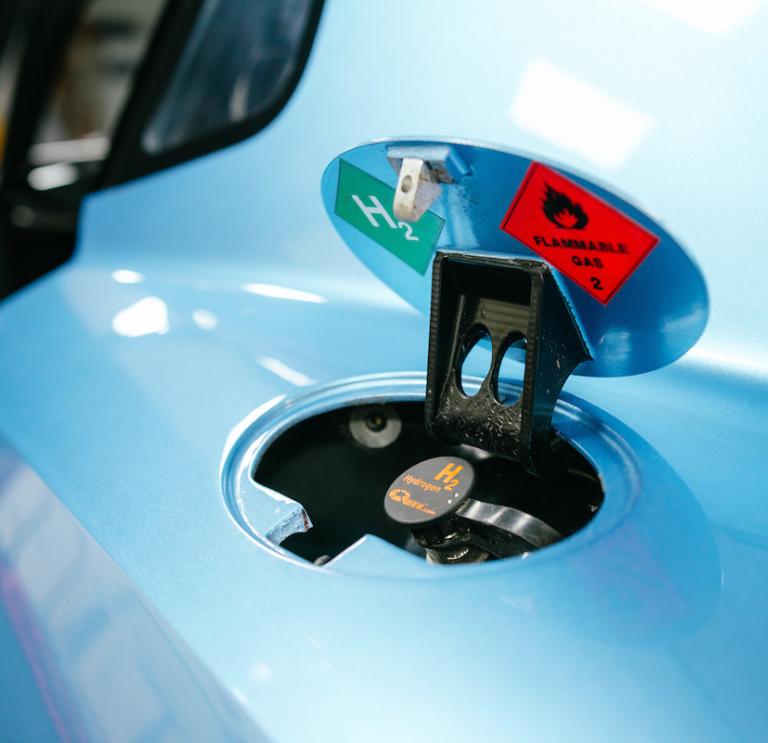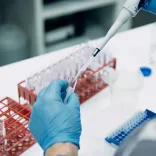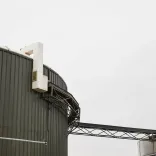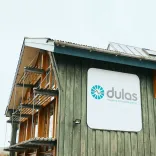Wales has a special affection for hydrogen. The hydrogen fuel cell was invented in 1842 by a Welshman, William Grove from Swansea. His invention paved the way for a limitless form of green energy that will power our zero-carbon future.
The world is finally waking up to the reality of climate change. All around the world, governments are busily drawing up roadmaps that’ll lead to the zero-carbon future promised by the Paris Agreement. We’ll all do it slightly differently: in Africa and the Middle East they’ll tilt towards solar power, while others will beef up their nuclear capacity. Coastal nations will look to their seas. But hydrogen plays a big part in everyone’s plans. Green hydrogen has been dubbed the new oil. But it’s actually better than that. Because we can drop carbon from the vast energy supply-chain and its production can be better distributed across the world.
Hydrogen is the ultimate clean fuel of the future. It’s a fantastic source of power and heat, reacting cleanly with oxygen to produce loads of useful energy and a harmless waste product: water. And there’s a lot of it about. In fact, hydrogen atoms make up 75% of the entire weight of the universe. It bonds readily with other elements to make all kinds of useful things. Synthetic fuels can be produced for a circular economy. Add it to oxygen, and you have water. Add nitrogen and you’ve got ammonia. And add hydrogen to vegetable oil and – hey presto! - margarine.
Most of Earth’s hydrogen is locked up in water: two hydrogen atoms bonded with a single oxygen atom. You’ll rarely find hydrogen on its own on Earth – although natural hydrogen does seep from thermal vents deep beneath the crust – as it’s reactive or just floats off into space.
Another weird thing: for something so abundant, pure hydrogen is quite tricky to make, store and transport. Currently most of our hydrogen is made out fossil fuels or natural gas, which churns out a lot of carbon as a by-product. Not ideal.
The cleanest way is by electrolysis: you run an electric current through water, which splits it into oxygen and hydrogen. And if you use renewable power - wind or solar, say – to generate that electric current, you’ve got ‘green hydrogen’. It’s the holy grail of clean energy.
Then to convert hydrogen back into power, you can either burn it, or just reverse the electrochemical process using a fuel cell. Thank you, William Grove.
To make green hydrogen cost-effective, you need make it on a grand scale. You need to be somewhere that has lots of water and an inexhaustible source of renewable energy. Somewhere surrounded by seas and fanned by westerly winds. Somewhere just like Wales.
Wales is already on track to generate 70% of its electricity from renewables by 2030. We have lots of wind farms on land and sea, including the world’s fifth-largest offshore wind farm, Gwynt y Môr.
But here’s where it gets really exciting: what if you could use that offshore power to make green hydrogen, at scale? Big floating farms that harness the power of the wind, waves and tides to turn sea water into hydrogen.

Britain’s biggest energy port, Milford Haven, becomes its biggest hub for green hydrogen, piping it along the South Wales Industrial Cluster, converting into clean power wherever and whenever it’s needed, heating our homes and powering our cars, buses, trains and aeroplanes. Hydrogen bikes, too.
Having the right infrastructure is vital, but that’s already underway. For instance, Wales & West Utilities are well into the process of replacing all their metal pipes with plastic, and these new pipes can carry both biomethane and hydrogen. When you next change your boiler or install a fuel cell, it’s highly likely to be hydrogen-ready to connect seamlessly with this infrastructure.
Hydrogen is emerging as the fuel of choice for big, long-range modes of transport like ships, HGV lorries and aircraft. As we can see, battery electric vehicles can do the trick for smaller vehicles, but a purely battery HGV would be limited by the weight and range of the batteries and make huge demands of new grid infrastructure and the time to recharge batteries. Then there are both the ethical and sustainable questions of mining of lithium and cobalt resources. In a zero-emission transport race where there are only two realistic runners, there will need to be a careful balance between batteries and hydrogen.
Big transport may, therefore, convert to hydrogen at-scale first, and the technology and refuelling infrastructure can swiftly cascade down into vans, cars, bicycles and drones. Wales already has a hydrogen car pioneer in Llandrindod Wells-based Riversimple, whose two-seater Rasa model will be operational in 2023, followed by a light commercial van and larger family car production. By 2032, Riversimple projects having a fleet of 180,000 vehicles leased to customers.
Hydrogen will slot into a wider energy system that’s more localised, flexible and smarter. Alongside hydrogen, we’re pushing the frontiers in generating clean energy from solar, wind, waves, tides and hydro. Houses and offices won’t just guzzle power: they’ll generate their own power from solar panels and give the excess back to the grid. Welsh scientists are researching battery technology so they’ll charge faster, store more efficiently, and run longer. Everything knits together, bringing all low-carbon capabilities into a single, seamless system.
And right in the middle of it all, the simplest, lightest and most abundant element in the universe.
To discuss opportunities in this sector contact us here




